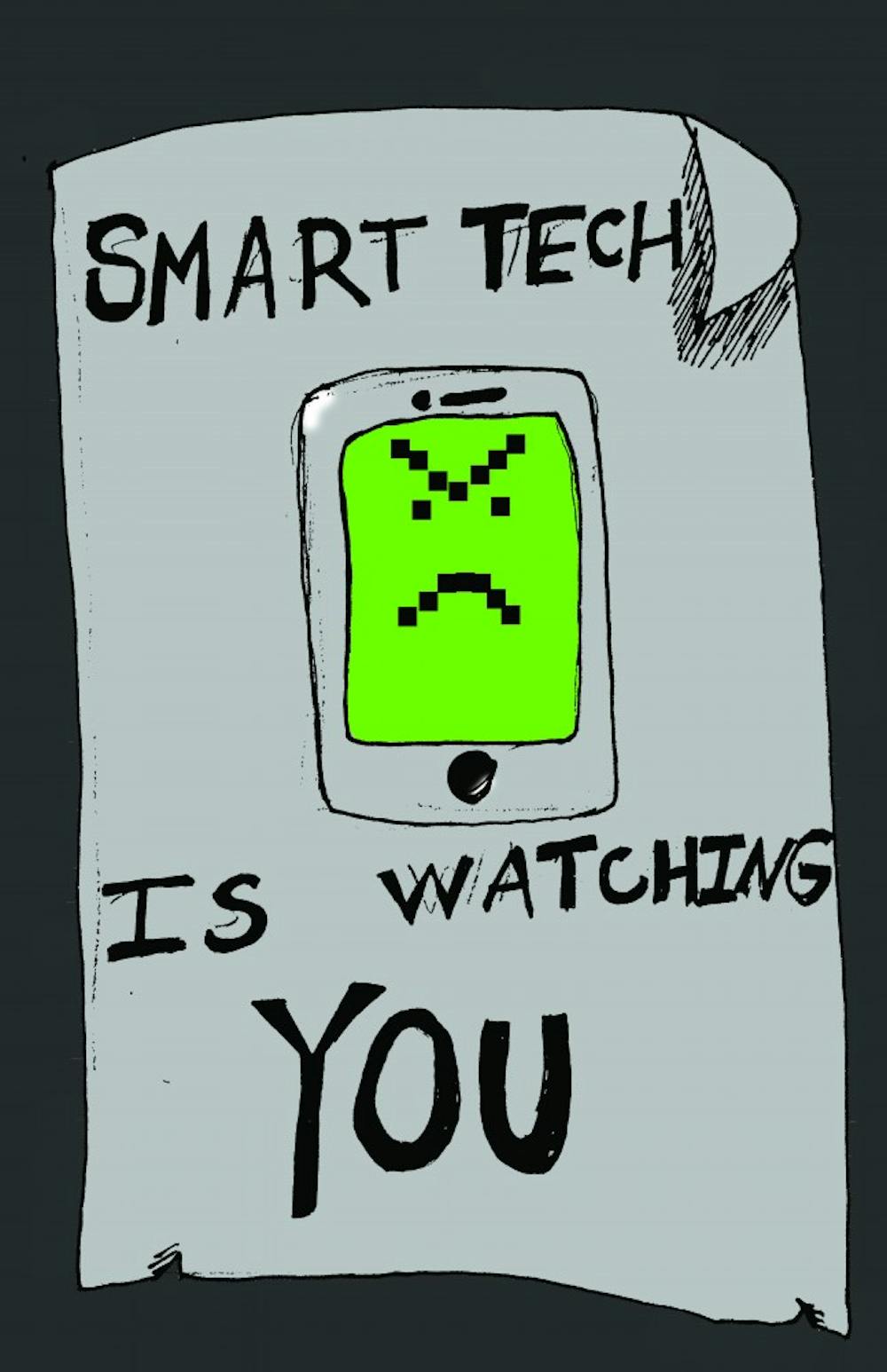From self-teaching thermostats to voice-controlled TVs, “smart” home devices offer the potential to integrate cutting-edge technology into everyday appliances.
But many forget the security risks that come with sharing private information through these devices.
James Clapper, the United States director of national intelligence, told the Senate that the internet capabilities of smart home technology will open the door for government surveillance.
Clapper said intelligence agency access to these devices would provide information such as identification, surveillance, monitoring, location tracking and more.
We, the Editorial Board, believe such data collection and surveillance is harmful and ineffective.
Data collection in this manner would likely be legal under the Patriot Act, which in 2001 granted the United States government the ability to create domestic mass surveillance programs.
But despite the legality of these programs, the Pew Research Center reported 54 percent of Americans disagree with the bulk data collecting done by government agencies.
Such surveillance programs became exposed in 2013 after Edward Snowden revealed the National Security Agency’s surveillance activity.
Now, the possibility of a “Big Brother” scenario raises questions about the effectiveness of national mass surveillance.
To put it simply, this level of privacy invasion should be allowed only if it provides major advancements in national security.
President Obama and intelligence officials regularly claim domestic surveillance is successful, even claiming it has saved lives.
However, studies from the New America Foundation and a White House review panel showed the total number of terrorist attacks stopped by the NSA’s bulk data collecting was neither effective nor essential.
It’s also thought that intelligence agencies are already backed up with too much data.
William Binney, a former NSA worker turned whistleblower, said the NSA failed to stop terrorist activities such as the Boston Bombing and the Paris attacks simply because there was too much information to sift through.
If intelligence agencies like the NSA or CIA were to collect audio heard through smart TVs or location information recorded by cars with built-in WiFi, the problem would surely increase.
It could render all mass surveillance programs virtually useless.
It’s not enough that millions of phone calls and emails have been hoarded.
Now, your TV viewing habits and thermostat settings are worthy of collection, too.
Even if you believe you have nothing to hide, the invasion of privacy created when using smart home devices should make anyone feel uneasy. What you believe is safe today could be considered dangerous in the future.
There are certain lines that should not be crossed in realm of privacy. Covertly gathering data through smart home devices crosses that line.
U.S. intelligence organizations should instead work on building a better program to make the world a safer place.




